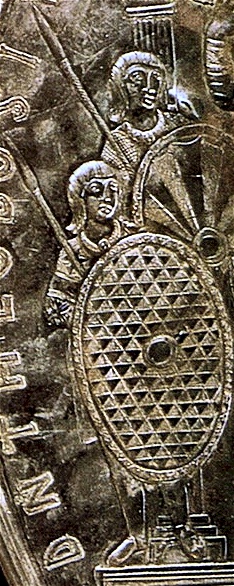For one thing Gothenburg sounds, well, Gothic, whereas in fact the city wasn't successfully founded until King Gustavus Adolphus came along in 1621, which was long after the Goths:

photo by Rama
oh, no, sorry, not that sort of a Goth. This sort:

had stopped being a force in any land.
It is the case, though, that the city of Gothenburg is in Gothia, the ancient land of the Goths, and it does stand on the Göta älv, or Gothia River. There's long been a fortress, or borg, there too.
In fact, although the Swedish form of the city's name is Göteborg, the French formal form is Gothembourg, and the Iberian form is the rather dashing Gotemburgo, basically if you say Gothenburg everyone everywhere knows what you're talking about, and this has been the case for so long that even Göteborg University has changed its name to University of Gothenburg in many international contexts.
But Göteborg is a modern city, and in 2009 the people in charge decided they'd better come up with a wheeze to show they've moved on a bit from the Ancient Goths. They wanted to do something about the dots over the o in Göteborg at the same time: these dots were felt to be a bit of a nuisance, a bit formal, a bit old-fashioned, a bit insular, a bit hard to type; and so the good people of Göteborg came up with a nice new spelling of the town's name: Go:teborg.
Do you see what they've done there?
Personally, I like it. I'd never have thought that it was possible to make a colon cool, but the good people of Go:teborg really seem to have done it.
And good, I say, for them.
Thing To Use Today: a colon. This word comes from the Greek kōlon, which means limb (a colon started off meaning a whole passage, not just a punctuation mark).
No comments:
Post a Comment
All comments are very welcome, but please make them suitable for The Word Den's family audience.